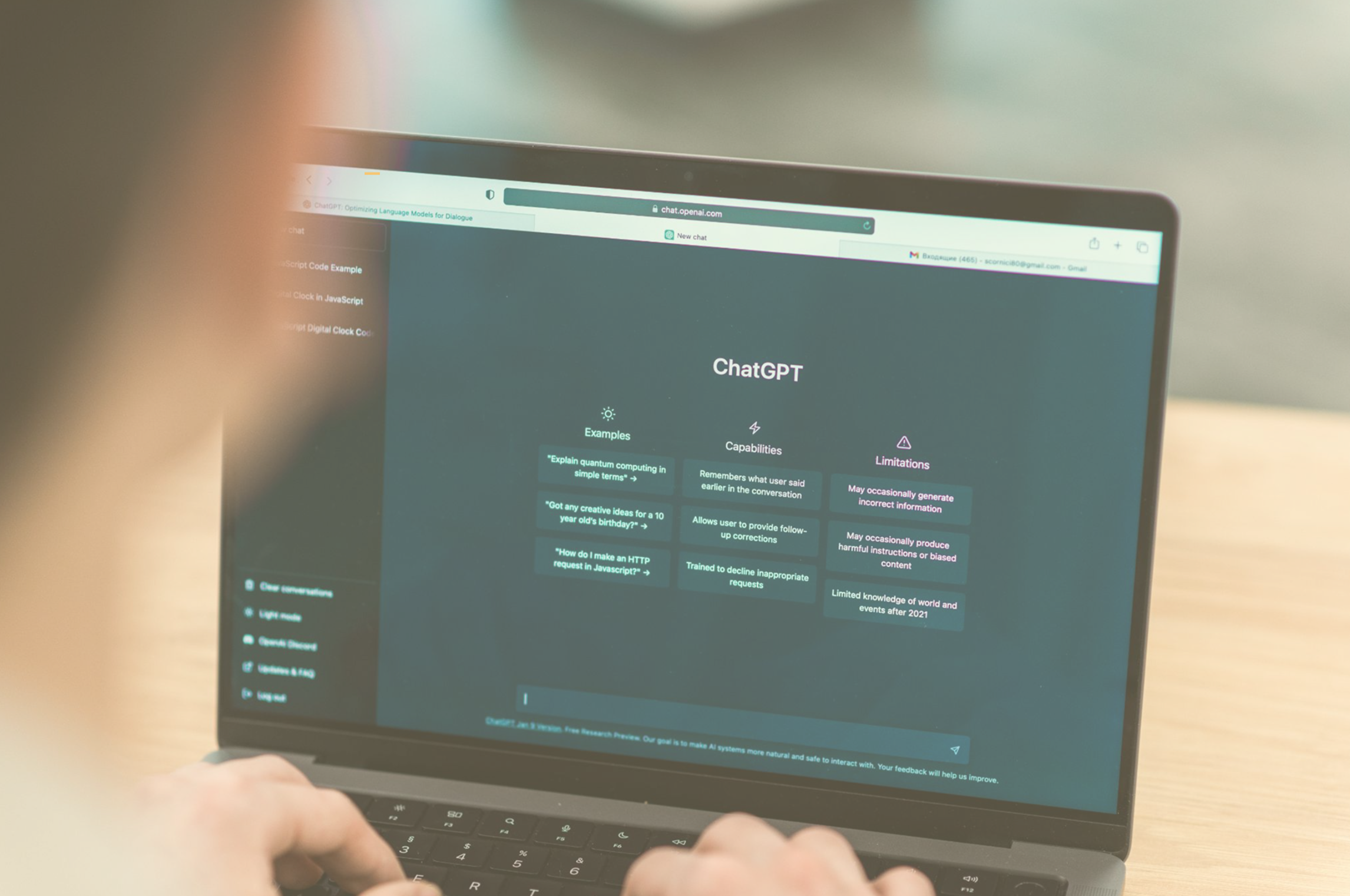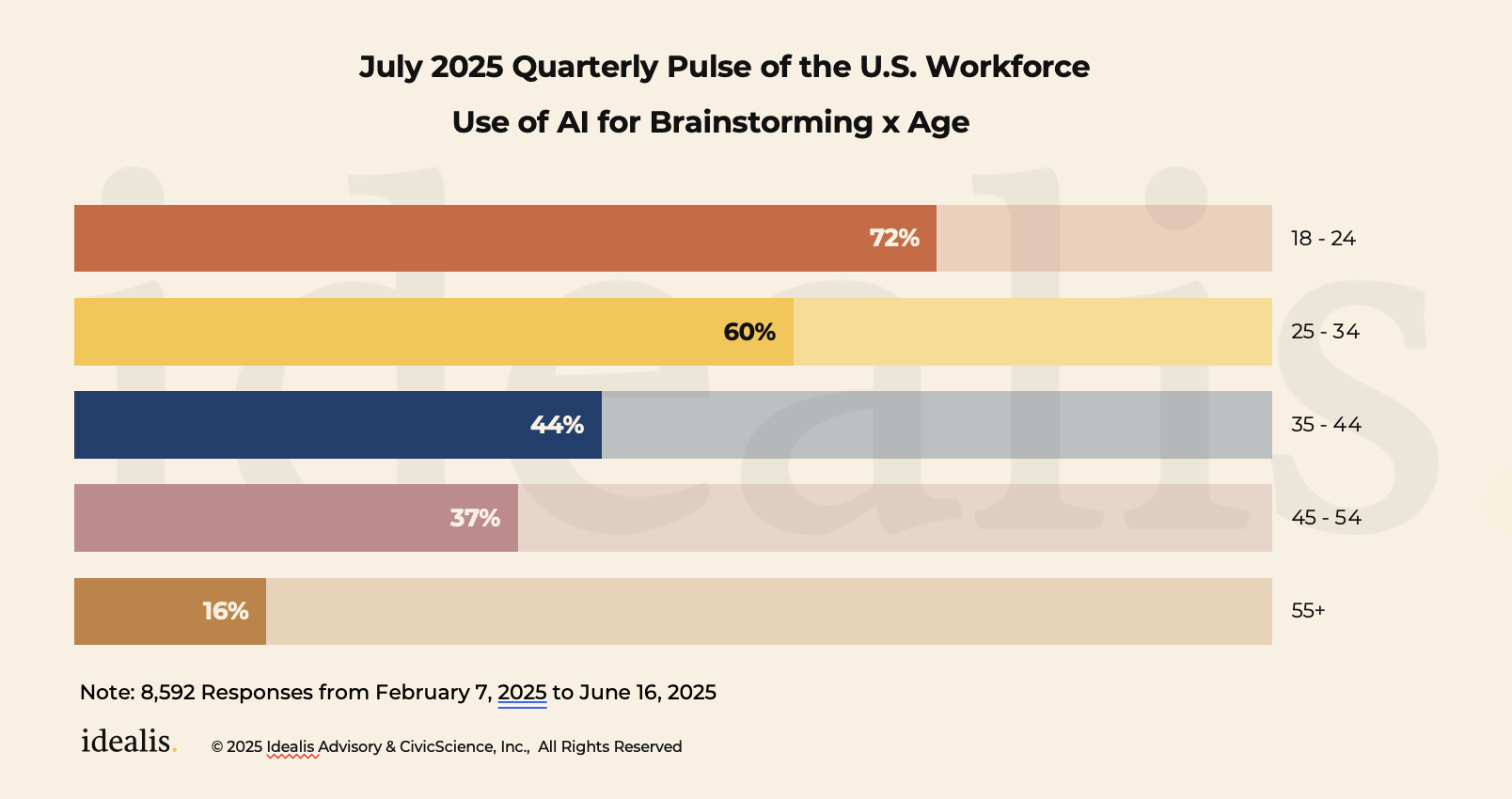
Ready or Not: AI Adoption at Work
The July 2025 quarterly edition of Pulse of the U.S. Workforce explores how employees across America are experiencing the rise of generative AI (GenAI) in the workplace. Drawing on real-time data from thousands of respondents across hard-to-reach sectors, the report offers an early look at how this technology is landing across individuals, teams, and organizations and reveals a paradox: as AI adoption grows, optimism and anxiety are rising side by side.
The findings also highlight that AI adoption isn’t just a tech project, it’s a leadership challenge. The impact of GenAI is proving to be as much cultural as it is technological, touching trust, engagement, and the human experience at work.
AI users report higher trust in major companies and see clear productivity gains, yet they are less happy in their jobs and more concerned about job security. It’s the tension of early adoption: enthusiasm for AI’s potential colliding with uncertainty about what it means for the future of work.
The report highlights where AI is gaining traction at both the individual and organizational levels. At the individual level, adoption is being driven by younger employees: 72% of workers under age 24 report using GenAI tools compared to lower rates in older age groups. Adoption is also higher among more diverse and lower-income workers, signaling that experimentation is starting from the edges of the workforce and moving inward. These patterns underscore the need for intentional on-ramps and targeted skill-building to ensure adoption scales equitably across roles and demographics.
At the organizational level, industries such as financial services, education, and health services are leading AI use, while sectors like construction and trade remain at the low end of adoption. One of the clearest markers of organizational readiness: only 35% of U.S. workers say their company has clear GenAI usage guidelines, yet engagement is 13 points higher (69% vs. 56%) in organizations that do.
“AI adoption is not a single rollout; it’s a ripple through every layer of context: the individual at the center, the leader shaping the team, the organization setting the structure, and the society defining the guardrails,” said Sumona De Graaf, Founder of idealis. “True value comes when those layers align to deliver both high performance and high humanity.”
At idealis, we work with CEOs, boards, and executive teams to solve exactly these challenges: aligning adoption across every layer, framing AI as augmented intelligence that elevates human capability, and embedding the trust and clarity needed to turn early productivity gains into sustainable cultural and performance advantage.
Access the report now to explore the data behind the AI adoption paradox. If you’re leading change at the top, we would welcome a conversation about how to align AI adoption with your culture, leadership, and performance goals.
About idealis.
Founded in 2022 with over 20 years of experience in the industry, idealis. exists to bring more humanity to work. Through data driven, human-centered solutions, idealis helps leaders and companies drive high performance, high humanity cultures to unlock the fullest potential of people at work, and in the world.
For media inquiries, contact: media@idealisadvisory.com
Never miss an insight.
Subscribe to our monthly digest and press releases




